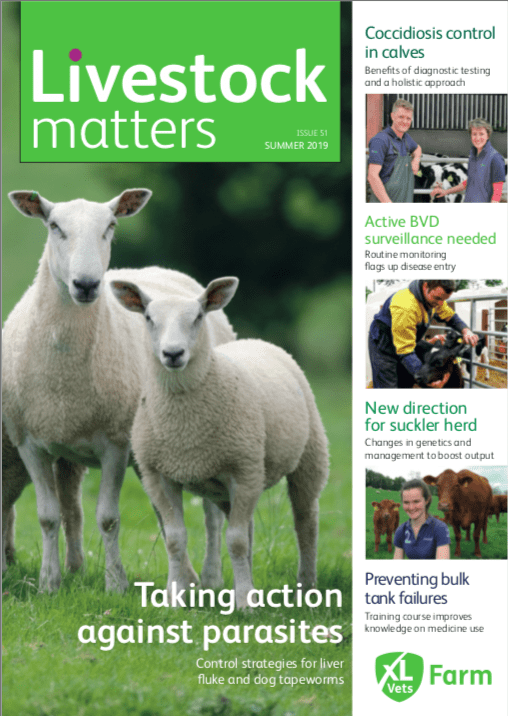Livestock Matters: Summer 2019
This summer may turn out to be just as wet as the spring, but at least it should be warmer! But warm weather, and especially warm wet weather, is great for parasites.
The protozoan parasite coccidia thrives in warm weather and cases of coccidiosis in dairy calves tend to rise in the summer. Mud snails also come out of hibernation, enabling liver fluke to complete their lifecycle and infect sheep and cattle.
In this issue we focus on the control strategies needed to protect livestock health and performance, as well as farm incomes.
Liver fluke is not the only parasite risk to carcase quality: Jules Rottenbury and Mike Glover of Torch Farm & Equine Vets explain how failing to treat dogs for tapeworm can also negatively impact on carcase sales.
Regardless of season or weather, beef and dairy farmers need to stay vigilant on keeping BVD out of their herds. Active surveillance averted a BVD disaster for one dairy farming client of Paragon Veterinary Group.
Vigilance is also important when it comes to antibiotic treatments. Shepton Vets is one of several XLVets practices that have been providing training to dairy farmers and their staff on medicines usage and mastitis control. Andy Tyrer reports on how a better understanding has led to a drop in bulk tank failures, and outlines the issues around off-label product use.
We hope you enjoy this issue of Livestock Matters.

